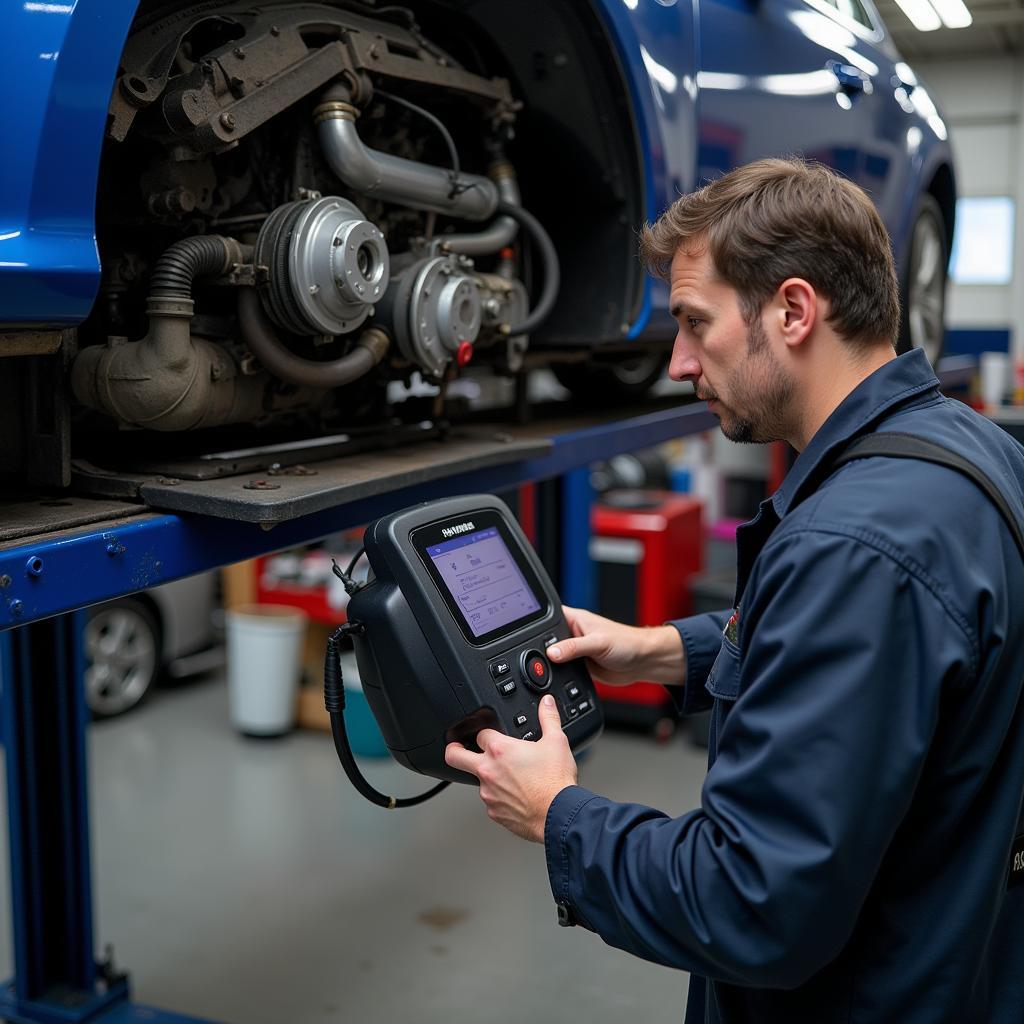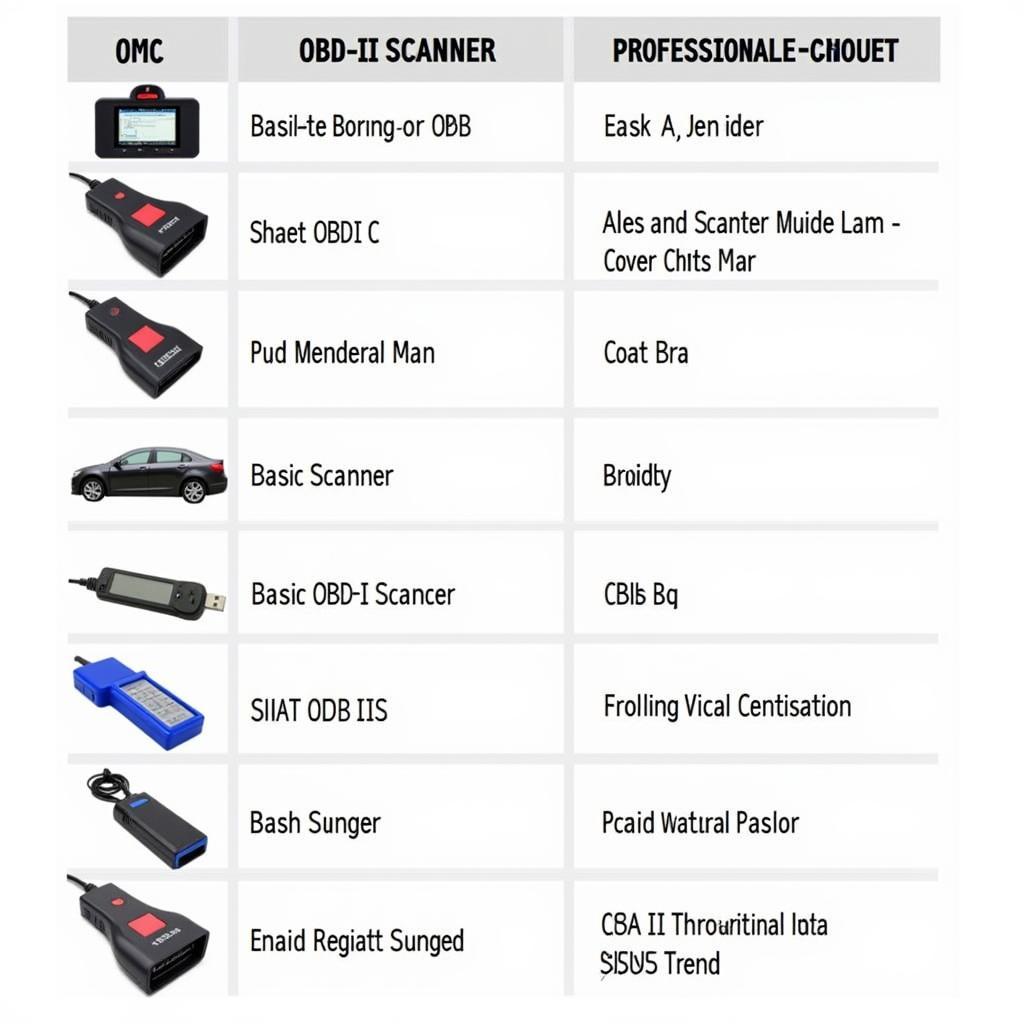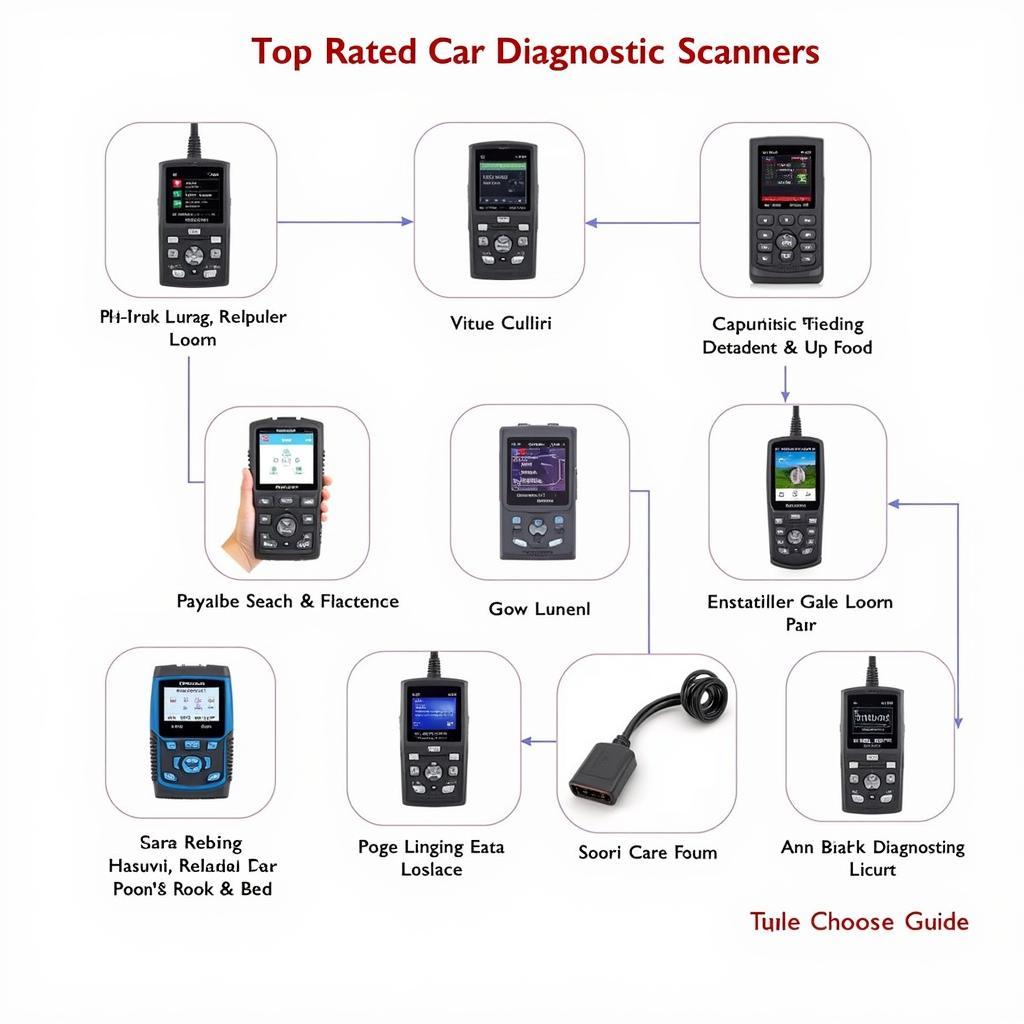Choosing the Best Car Diagnostic Scanner can be a daunting task, especially with so many options available on the market. Whether you’re a seasoned mechanic or a car enthusiast looking to diagnose your own vehicle, understanding your needs and the features of different scanners is crucial. This comprehensive guide will equip you with all the information you need to make an informed decision and find the perfect scanner for your needs.
Understanding Your Diagnostic Needs
Before diving into the world of car diagnostic scanners, it’s essential to determine what you’ll be using it for.
-
DIY Car Maintenance: If you’re a car enthusiast who enjoys performing basic maintenance and troubleshooting, an entry-level OBD-II scanner might suffice. These scanners can read and clear basic engine codes, providing insights into issues like check engine lights.
-
Professional Diagnostics: Professional mechanics require advanced scanners with extensive capabilities. These high-end scanners can access multiple vehicle systems, perform bi-directional controls, and provide detailed live data, enabling in-depth diagnostics and complex repairs.
 Mechanic Using Diagnostic Scanner
Mechanic Using Diagnostic Scanner
Types of Car Diagnostic Scanners
Car diagnostic scanners can be broadly categorized into three types:
1. OBD-II Scanners
OBD-II scanners are the most basic type, designed to read and clear diagnostic trouble codes (DTCs) related to the engine and emissions systems. They are widely available, affordable, and suitable for DIY users who want to perform basic diagnostics.
2. Advanced OBD-II Scanners
These scanners offer additional features beyond basic code reading and clearing. They can provide live data streams, graph sensor readings, and offer some bi-directional control capabilities. Advanced OBD-II scanners are suitable for both DIY enthusiasts and professional mechanics who need more in-depth information.
3. Professional-Grade Scanners
Professional-grade scanners are the most sophisticated and expensive option, offering comprehensive diagnostic capabilities. They can access all vehicle systems, perform advanced programming functions, and provide detailed technical information. These scanners are indispensable for professional mechanics and automotive workshops.
 Car Diagnostic Scanners
Car Diagnostic Scanners
Key Features to Consider
When choosing a car diagnostic scanner, several key features can significantly impact its usability and effectiveness:
1. Vehicle Coverage
Ensure the scanner you choose supports the make, model, and year of your vehicle. While most scanners offer broad coverage, some specialize in specific manufacturers or models.
2. System Coverage
Consider the vehicle systems you need to diagnose. Entry-level scanners typically focus on engine and emissions systems, while advanced scanners provide access to ABS, SRS, transmission, and other critical systems.
3. Live Data Streaming
Live data streaming allows you to view real-time sensor readings, providing valuable insights into the vehicle’s performance and helping pinpoint issues.
4. Bi-Directional Controls
Bi-directional controls enable you to interact with vehicle systems, such as actuating solenoids, relays, and motors, allowing for component testing and system diagnostics.
5. Software Updates
Regular software updates are crucial for ensuring compatibility with newer vehicle models and accessing the latest features and bug fixes.
Top Car Diagnostic Scanner Recommendations
Here are some of the top car diagnostic scanners in the market, catering to different needs and budgets:
- Best Overall: Autel MaxiCOM MK908P – Offers comprehensive vehicle coverage, advanced diagnostics, and programming functions.
- Best for DIY Users: ANCEL BD310 – Affordable and user-friendly OBD-II scanner with enhanced code reading and live data capabilities.
- Best Value for Professionals: Launch CRP129X – Provides excellent value for its price, offering extensive system coverage and advanced features.
 Best Car Diagnostic Scanners
Best Car Diagnostic Scanners
Conclusion
Investing in the best car diagnostic scanner can save you time, money, and frustration in the long run. By understanding your diagnostic needs, the types of scanners available, and the key features to consider, you can confidently choose a scanner that meets your requirements and empowers you to diagnose and repair your vehicle effectively.

Leave a Reply